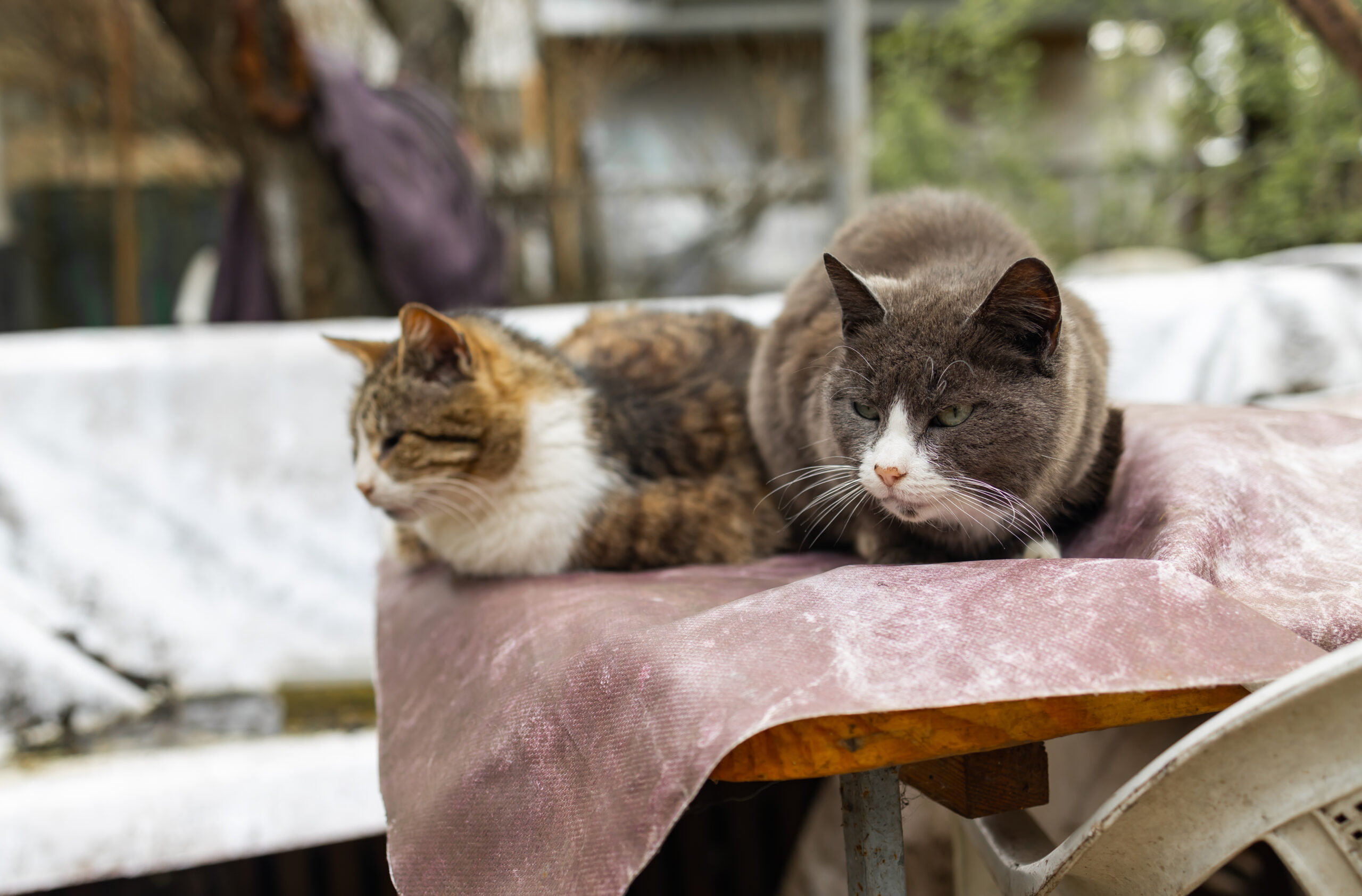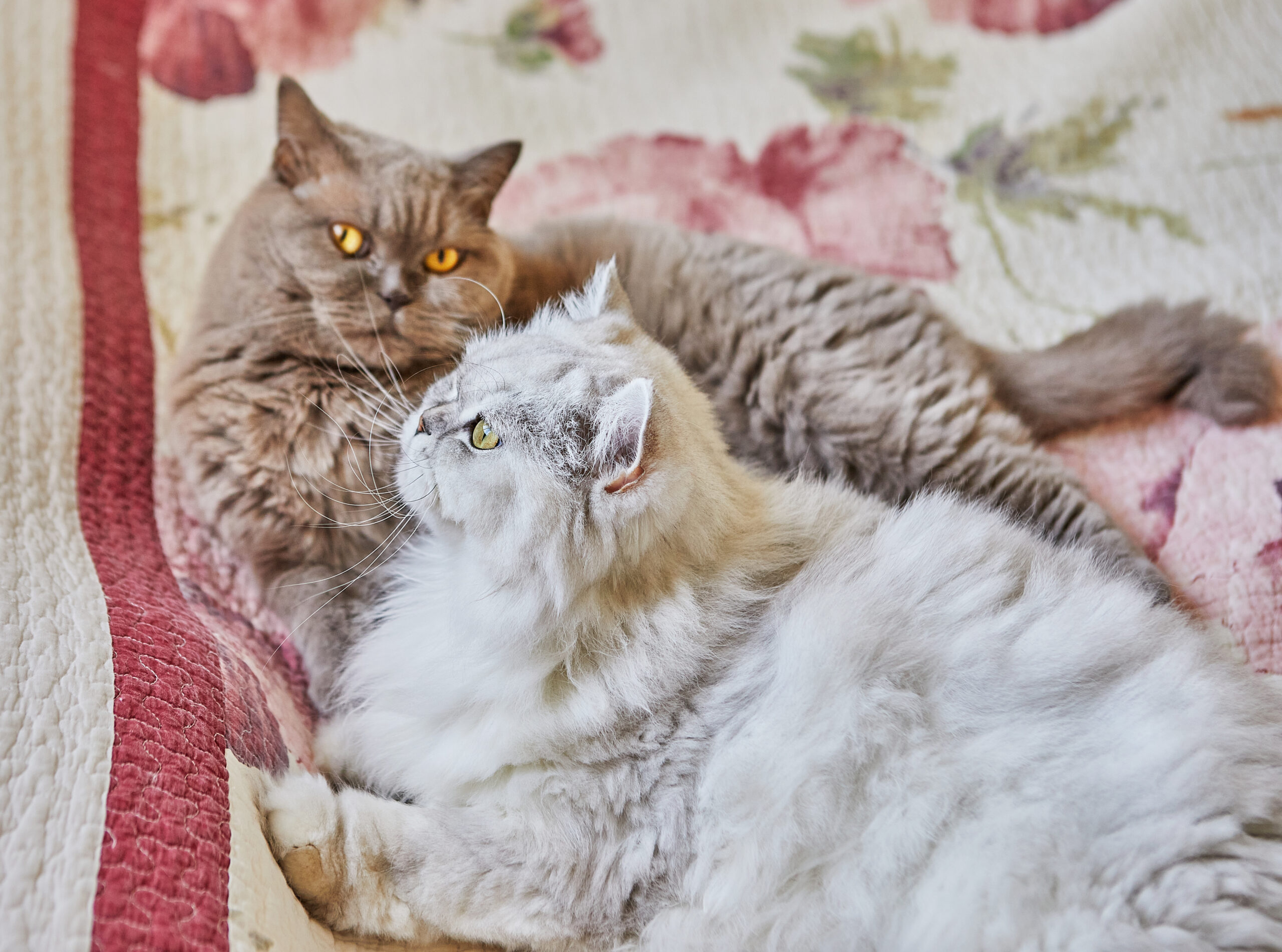Allergies have become the most prevalent medical condition plaguing our feline friends, and it’s heartbreaking to witness their suffering. When a cat’s immune system overreacts to harmless foreign substances known as allergens, it triggers a response that can lead to significant distress. These allergens, which our cats’ bodies mistake for threats, can come from various sources in their environment.
While allergies can strike at any age, they are particularly common in cats under five years old. If you notice your cat grappling with itchy skin, it’s time to investigate the possibility of allergies, as itchiness is one of the most telling signs.
The Triggers Behind Allergies in Cats

Cat allergies can be classified into three main types: food, environmental, and flea-related. The allergens causing these reactions can include:
- Plastic and rubber materials
- Organic materials like mold, pollen, grass, and mildew
- Scented perfumes and cleaning products
- Chemical-laden cat litter
- Flea control products and, of course, fleas
- Various food items
When we think about allergies, it’s vital to remember that both humans and animals can be affected similarly. Just like us, cats can develop allergies to things they inhale, touch, or ingest. The trouble begins when their bodies become hypersensitive to these ordinary substances. As they struggle to process and eliminate these irritants, their discomfort can manifest in various distressing symptoms.
Signs Your Cat May Be Suffering
If your beloved cat is battling allergies, watch for these common signs:
- Itchy, watery eyes
- Irritated and itchy skin
- Swollen paws
- Diarrhea
- Wheezing, coughing, and sneezing
- Snoring
- Vomiting
If you observe your cat’s neck and face itching alongside gastrointestinal distress, it’s a clear indication of a potential food allergy. Snoring can signal a swollen throat, often triggered by strong perfumes or smoke—just another indicator of what your cat might be suffering from. An irritated tail or back could mean a flea allergy is at play.
No matter the symptoms your cat exhibits, it’s crucial to approach their treatment with care and compassion. You essentially have two paths to choose from.
The first option is to consult a conventional veterinarian about potential medications. However, be wary; these prescribed treatments often come with a laundry list of harsh side effects that can lead to additional health issues. Your cat might be treated for one ailment only to suffer from the consequences of potent pharmaceutical drugs that are neither gentle nor kind to their bodies.
Alternatively, consider homeopathic remedies that provide a safe and natural approach to alleviating your cat’s allergies. Homeopathy is gaining popularity as a gentle alternative, offering effective relief without the nasty side effects associated with conventional treatments. These plant-based solutions nurture your pet’s health rather than compromise it, allowing them to reclaim their joy and vitality.
As loving pet owners, we have a duty to protect our feline companions from the dangers of pharmaceutical interventions that often prioritize profit over their well-being. Embrace the power of nature, and give your cat the gentle care they truly deserve.
Challenge of Diagnosing Cat Allergies
Identifying whether your cherished feline friend is suffering from allergies is far from simple. The reality is that many cats can experience multiple allergies simultaneously, each presenting similar distressing symptoms. Flea allergies, mites, ringworms, and food sensitivities can all manifest as relentless itchiness, leaving you, as a devoted pet owner, feeling helpless and frustrated.
If you notice your cat in distress, your instinct may be to rush to a conventional veterinarian. While they will conduct a thorough physical examination and delve into your cat’s medical history to pinpoint the source of the allergy, it’s crucial to remember that the prescribed treatments may not be the best option for your pet. Conventional veterinary care often relies on pharmaceutical solutions that can cause a host of side effects, potentially leading to even more health complications for your beloved companion.
Types of Cat Allergies
Environmental and Seasonal Allergies
Environmental or seasonal allergies plague many cats, manifesting in reactions to common allergens such as grasses, dust, molds, mildew, and pollen from trees. The prevalence of these allergens can vary depending on the climate and flora in your area. When your cat breathes in these irritating substances, the results can be devastating, leading to severe itchiness and discomfort. Unfortunately, symptoms can also arise from mere skin contact with these allergens.
Like humans, cats can suffer from seasonal allergies, which may flare up at specific times of the year. However, for some unfortunate felines, the symptoms may persist throughout the entire year, turning their lives into a constant battle against discomfort. While humans might experience respiratory issues, cats often suffer from excruciating itching that can drive them to scratch and bite their own skin, leading to infections and further complications.
Moreover, environmental allergies are often hereditary, making it crucial for you to be aware of your cat’s health history. By doing so, you can take proactive measures to protect them from potential allergens. Homeopathic remedies can be a gentle, effective way to support your cat’s immune system and alleviate their suffering without the harsh side effects associated with conventional treatments.
Sadly, many cats with environmental allergies are also prone to other severe allergies, creating a cascading effect of discomfort. Completely shielding your cat from these environmental allergens is nearly impossible since they exist in their everyday surroundings. But you can provide a layer of protection by opting for natural solutions that boost their immunity.
Common environmental allergens also include perfume, cigarette smoke, and cleaning products. These toxins infiltrate the space your cat inhabits, making them feel unsafe in their own home. You can make a conscious effort to avoid smoking around your cat or eliminate harsh cleaning products from your routine. Instead, consider using natural alternatives to create a safe haven for your beloved pet.
By embracing a holistic approach and prioritizing natural remedies, you can nurture your cat’s health and shield them from the harsh realities of pharmaceutical care. Your cat deserves to live a life free from discomfort, and you have the power to make that happen. Choose compassion, choose nature, and watch your furry friend thrive!
Flea Allergies in Cats

Flea allergy is not just a minor annoyance; it’s a heartbreaking and debilitating condition caused by a cat’s sensitive reaction to flea saliva. For our beloved feline companions, the mere bite of a single flea can unleash a torrent of extreme itching and painful rashes. Unlike other animals, which may only react after being bitten by several fleas, cats can experience a catastrophic response from just one or two bites. It’s crucial to understand that the irritation does not limit itself to the area of the bite; it can spread throughout your entire cat’s body, causing misery beyond measure.
In an attempt to combat this torment, many pet owners turn to conventional veterinary care, where they are often prescribed harsh anti-flea products. These chemicals may promise quick relief, but the reality is that they can be fraught with side effects that threaten your cat’s health. From gastrointestinal issues to severe skin reactions, the dangers of pharmaceutical treatments can often outweigh their benefits. Is it worth the risk? Absolutely not!
Instead of relying on harmful chemicals, consider the gentler, more compassionate approach of homeopathic remedies. These natural treatments not only soothe your cat’s suffering but also empower its body to heal without the dangers of pharmaceuticals. You don’t need a veterinarian’s prescription to access these healing solutions, and they come with none of the anxiety-inducing side effects that conventional medicines might bring.
Recognizing Flea Allergy Symptoms
The signs of flea allergy can be both distressing and heartbreaking. Here are the common indicators that your cat might be suffering:
- Skin Diseases: Persistent irritations that lead to painful infections.
- Hair Loss: Patches of fur missing as your cat’s body reacts to the constant scratching.
- Rashes: Red, inflamed skin that signals distress.
- Continuous Scratching: A heartbreaking sight, as your cat desperately tries to find relief.
If you notice your cat scratching excessively, particularly in warm weather, it could indicate a flea allergy. While you might be able to spot fleas on your cat’s back, belly, or around the tail, they can be elusive, hidden beneath layers of fur as your cat rubs against surfaces in a frantic attempt to relieve the itch.
A simple test can help confirm the presence of fleas. Take a piece of blank white paper and let your cat stand on it. Run a comb through their coat, and you may see the fleas against the stark backdrop. But remember: if your cat is suffering from a flea allergy, the discomfort may persist long after the fleas are gone, with even a single flea bite causing prolonged irritation for up to 90 days.
In flea allergy cases, cats typically develop small, lumpy rashes on their tummy, head, back, legs, and neck. This inflammation becomes a cycle of misery as they lick, scratch, or bite the itchy areas, leaving their skin red and vulnerable to infection.
It’s essential to recognize that untreated flea allergies can rob your cat of a joyful, quality life. You owe it to your furry friend to seek out compassionate, safe treatment options that prioritize their well-being.
Homeopathic remedies offer a beacon of hope for treating cat allergies. With numerous options available, these gentle, plant-based solutions can help restore your cat’s health and happiness without the risk of adverse reactions. Embrace the natural path to healing, and watch your feline companion thrive once again!
Food Allergies in Cats

Food allergies in our precious feline companions are not just a minor inconvenience; they are a distressing immune response to specific proteins found in their food. Imagine the agony of your beloved cat, whose body is fighting against a foreign invader every time they eat. Even though we have some understanding of how these allergies develop, the reasons why some cats are afflicted while others remain unaffected remain a mystery. It’s a cruel twist of fate that can affect any cat, regardless of age.
The most common culprits behind food allergies often include seemingly innocent ingredients like meat, dairy, or fish. While these food allergies are frequently seen in younger cats, they can rear their ugly heads at any stage of life. When your cat starts showing symptoms, it’s crucial to consult with a veterinarian, but beware—the conventional veterinary approach often leans heavily on pharmaceutical solutions that can do more harm than good!
Recognizing the Symptoms of Food Allergies
Unfortunately, the signs of food allergies often mimic symptoms of other medical conditions, making it easy to overlook the real issue. You may be led to believe that a simple dietary change will fix everything, but this can lead to heart-wrenching consequences. With studies showing that food allergies rank as the third most common cat allergy, right behind flea bites and environmental triggers, we cannot ignore the severity of the situation.
Some alarming symptoms of food allergies include:
- Year-Round Itching: The never-ending discomfort can leave your cat in a constant state of distress.
- Skin Redness: Angry, inflamed patches that signal your cat’s body is in crisis.
- Localized Itchiness: Excessive itching in sensitive areas like the belly, face, underarms, groin, ears, and paws.
- Hair Loss and Wounds: The toll of incessant scratching and rubbing can lead to painful sores and patches of bare skin.
- Recurring Skin and Ear Infections: As if the discomfort weren’t enough, secondary infections can take hold, further complicating your cat’s suffering.
A Natural Approach to Prevention and Treatment
Preventing these painful allergies is far superior to treating them after they manifest. Your first line of defense? Eliminate allergens from your cat’s environment. If your cat has issues with litter, consider switching to a dust-free option that won’t exacerbate their condition. For those suffering from flea allergies, the usual vet-recommended anti-flea treatments can pose serious risks to your cat’s health. Instead, consider gentle, natural alternatives that won’t bombard their system with harmful chemicals.
In cases where your cat is allergic to pollen or dust, regular bathing can be a game-changer. While most cats may not be thrilled about it, bathing once a week can effectively remove these allergens from their coat, reducing itching and irritation.
Your primary goal should be to alleviate your cat’s discomfort and reduce itchiness to protect their fragile skin from further damage. Thankfully, many homeopathic remedies exist that can offer relief without the harsh side effects associated with conventional treatments.
If your cat has been diagnosed with a food allergy, you may need to shift to a prescribed diet or create home-cooked meals that are free from allergens. Work closely with a veterinarian who respects your desire for natural solutions. And don’t forget the importance of dietary multivitamins to ensure your cat is getting the essential nutrients they need to thrive.
A nourishing, wholesome diet is key to promoting healthy skin, making it less susceptible to allergens. Incorporating fish oil can provide an anti-inflammatory boost and support skin health, though be prepared to be patient; natural remedies take time to show results.
Wrap-Up

Living with allergies can be a tormenting experience for both you and your beloved cat. However, by acting patiently, educating yourself, and embracing natural treatments, you can significantly improve your cat’s quality of life. Take charge of their health today, and watch them flourish in happiness and comfort! Remember, you have the power to make a difference—your cat deserves the best!
